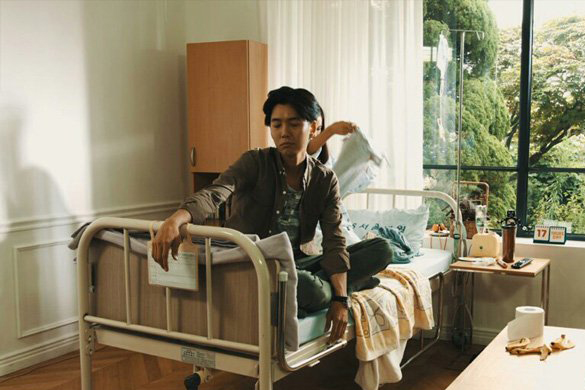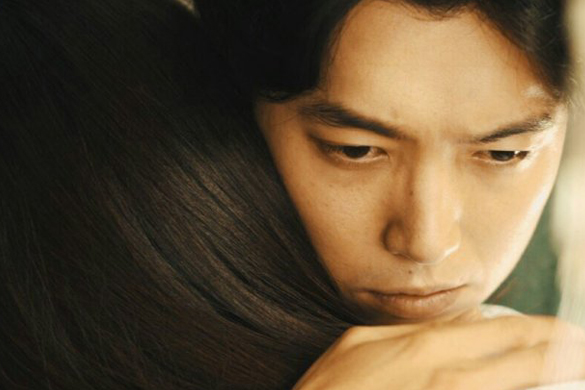
 |
|||
Tae-woo (Jung Kyung-ho) and Hee-yeon (Jung Yoon-soo) are in a deeply loving relationship, fully intent on spending the rest of their lives together. The only problem is, the rest of Hee-yeon’s life will be incredibly short-lived. For, she is suffering from a terminal illness and becoming more gravely ill on almost a daily basis. Splitting his time between visiting Hee-yeon in hospital and working as a zookeeper, Tae-woo desperately tries to hold himself together while doing what he can to ease his lover's growing fears about her impending death.
Review: Step back to the New Korean Cinema wave of the late 1990s / early 2000s and you’ll find terminal illness used as a plot focus in a plethora of Korean films. While the less nuanced of these tended to use terminal disease as a (soon to be deeply overused) excuse for weepy and often forced melodrama, there were a few films – Hur Jin-ho’s ‘Christmas in August’ and Lee Han’s ‘Lovers’ Concerto’, to name but two – which quite rightly came to be considered as classics of the genre. The reason such films stood, and stand, head and shoulders above the competition is that they used terminal illness to allow realistic and in-depth dissections of love, loss and indeed the human condition and spoke of how the concept of death is sometimes harder for those left behind than for those leaving this mortal coil, drawing viewers to tears in symbiosis with characters, gently and naturally. Not only that, but when the tears do inevitably come they have been wholly earned and are entirely necessary, rather than simply being a cinematic push to make an audience emote. While the days have perhaps passed when a film such as ‘Amor’ could be considered a classic, it nonetheless succeeds in being able to hold its head high alongside its aforementioned illustrious company. The majority of Korean terminal illness dramas follow a similar timeline format, the disease coming to light around the middle of proceedings and destroying what had previously appeared to be an idyllic life. However, ‘Amor’ presents the fact that Hee-yeon is dying at the very outset, an early scene showing Tae-woo searching the internet for a cemetery/arboretum even before we’re introduced to her. As such, in order to show Tae-woo and Hee-yeon’s relationship prior to Hee-yeon falling ill, director Han Cheol-soo uses a flashback to a deeply prophetic conversation between the couple discussing longevity and the different life expectancies of men and women, as Hee-yeon irons a shirt while Tae-woo lies with his head in her lap. An utterly gorgeous scene in which Tae-woo and Hee-yeon’s love screams out without ever needing to be vocalised, the chemistry between the two characters being almost palpable.
‘Amor’ largely focuses on how Hee-yeon’s deteriorating condition affects Tae-woo, and though we do see Hee-yeon utterly terrified of dying and increasingly falling apart (both Jung Kyung-ho and Jung Yoon-soo giving superlative performances throughout), it is Tae-woo’s desperate attempts to stay positive and strong as he deals with Hee-yeon’s mood swings – her pleading with him to visit her more, then pleading for him to stay away; her demands that he should destroy everything that reminds him of her; and even her convincing him to take her from hospital for a day out – and the knowledge that their time together is growing short that show the true strength of the narrative. Ultimately, 'Amor' speaks of life in the present and memories of the past and how much each is affected by the other.
'Amor' (그리울 련) / 2015 / directed by Han Cheol-soo
|
|||
All images © LeeFilm, Mirovision Review © Paul Quinn |
|||


